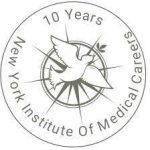
Surgical technicians play an essential role in the operating room by assisting other medical personnel during operations.
Surgical techs are in high demand due to the aging Baby Boomer generation and increasing life expectancy.
To become a surgical technician, New Jersey requires the completion of an accredited surgical technician program, which comprises lecture and clinical sections.
In addition to preparing students for entry-level work in the field, each program prepares graduates to pass the Certified Surgical Technologist (CST) examination.
If you’re interested in a surgical tech career path, keep reading to learn more!
Page Navigation
Licensing Requirements to Become a Surgical Tech
Although New Jersey doesn’t have state licensure requirements, the State mandates that all surgical techs hold a certification credential from a recognized organization or graduate from an accredited program.
To comply with the New Jersey State requirements, follow these steps:
Step One: Complete a Program
The first step is to find and complete an accredited surgical tech program.
For those living in New Jersey, you will often gain the benefit of in-state tuition making your education cheaper than venturing out of state.
Also, many professors have contacts at local hospitals to help you find a job.
Available programs take between nine months and two years to complete, depending on the education level you want to achieve.
Step Two: Gain Firsthand Experience
Part of all accredited programs is a clinical portion that provides hands-on training in a real-world setting.
Most programs allow students to work directly with surgical techs in surgical centers or hospitals.
This firsthand experience will help prepare you for the various demands and nuances of the position after graduation.
Step Three: Pass the Certification Examination
Once you have completed the program and gain firsthand experience, you must put the learned skills to the test by taking the CST exam.
This exam evaluates your skills and knowledge in the field, and a passing grade is required to obtain certification.
Step Four: Maintain the Certification
Although maintaining your certification isn’t a requirement to become surgical technician, it’s a requirement to continue in this role.
Surgical techs maintain their certification by fulfilling continuing education requirements that keep them updated on the latest techniques and advancements in the field.
These credits can be taken in-person or online, and seminars or other events count toward the credits.
5 Surgical Tech Schools in New Jersey
Bergen Community College
The accredited surgical technology certificate from BCC takes between nine months and one year to earn.
The program is comprised of in-class lectures and a new, state-of-the-art mock operating room with a sterilization/prep room.
This better prepares students for their required clinical externship.
The certificate only covers surgical tech topics like surgical procedures, proper sterilization, equipment use and maintenance, and medical terminology.
Camden County College
CCC boasts an associate degree program in health science with a surgical technology option.
Located across the Delaware River from Philadelphia, CCC’s surgical tech program covers anatomy and physiology, medical terminology, basic life support, microbiology, fundamentals of surgical technology, pharmacology, and several core classes.
The program also requires clinical rotations at a nearby medical facility to graduate.
The program requires a time commitment of around two years to complete.
College of Health Sciences
The College of Health Sciences offers a 20-month associate of applied science in surgical technology program.
The school utilizes the hybrid learning environment model with some lectures offered on campus and others remotely.
The 600 hours of clinical rotations are required to be in-person since they are hands-on training.
The curriculum covers topics like aseptic technique, infection control, medical terminology, microbiology, surgical procedures and instruments, sterilization, and physiology.
Medical Career Institute
MCI has an accredited surgical technology program requiring a time commitment of 13 months to two years, depending on the desired education level.
The program is balanced between on-campus lectures and mock operating room laboratory.
There is also an off-campus clinical externship with supervised firsthand training.
Program tuition, including all fees, books, and materials, is $25,432, and graduates are prepared to sit for the CST exam.
Passaic County Community College 
PCCC has an associate in applied science in surgical technology degree which takes approximately two years to complete.
During the program, students will learn about mathematics, anatomy, medical terminology, pharmacology, surgical procedures, disease, microbiology, and physiology.
Graduates will be prepared through lectures and clinical rotations to pass the CST exam.
Surgical Technician Schools in New Jersey – Summary Table
Top 5 Schools in New Jersey
| School Name | Address |
|---|---|
| Bergen Community College | 400 Paramus Rd, Paramus, NJ 07652, United States |
| Camden County College | 200 College Dr, Blackwood, NJ 08012, United States |
| College of Health Sciences | |
| Medical Career Institute | 901 W Park Ave Suite 201, Ocean Township, NJ 07712, United States |
| Passaic County Community College | 1 College Blvd, Paterson, NJ 07505, United States |
Salary
The median annual salary for a surgical tech is $52,300, with pay ranging from $42,175 to $62,807.
New Jersey surgical techs can expect to make a median of $56,800, with pay ranging from $45,910 to $68,263.
Annual Salary Range:Average Salary of Surgical Technologists in New Jersey
| City Name | Salary |
|---|---|
| Newark | $59,100 |
| Jersey City | $61,100 |
| Paterson | $60,200 |
| Elizabeth | $59,100 |
| Edison | $58,700 |
| Wayne | $60,200 |
| Lakewood | $58,200 |
| Hackensack | $60,100 |
| Trenton | $56,800 |
| Camden | $55,200 |
Regional Salary in New Jersey
| Region | Employed | Avg. Annual Salary | Avg. Hourly Pay | Top 10% Annual Salary | Bottom 10% Annual Salary |
|---|---|---|---|---|---|
| Atlantic City-Hammonton, NJ | 60 | $66,560 | $32 | $77,740 | $51,790 |
| Ocean City, NJ | ** | $70,330 | $33.81 | $77,780 | $61,020 |
| Trenton, NJ | 110 | $67,870 | $32.63 | $79,260 | $49,960 |
| Vineland-Bridgeton, NJ | 40 | $63,280 | $30.42 | $69,650 | $48,960 |
* Employment conditions in your area may vary.
Frequently Asked Questions
What are the primary duties of a surgical tech in New Jersey?
Surgical techs assist medical professionals during surgical operations under the supervision of registered nurses and surgeons.
As members of the operating room team, they are responsible for the following:
- Covering patients with medical drapes.
- Cut sutures.
- Hold retractors.
- Observe patient vitals.
- Operate some diagnostic equipment.
- Pass instruments to the surgical team.
- Positioning patients on the operating table.
- Preparing patients for transport and surgery.
- Setting up surgical equipment and instruments.
Where do most surgical techs work in New Jersey?
Approximately 75 percent of surgical techs work in delivery and operating rooms in hospitals.
The remaining 25 percent work in dental offices, physician offices, and outpatient surgery centers.
Since most surgeries are performed in hospitals, they are the leading employers for this profession.
What are the main career paths after becoming a New Jersey surgical technician?
Although most surgical techs start their careers in hospitals after graduation, there are other specialization opportunities and the chance to work in different settings.
These are several popular career paths:
- Advance to management – with additional education and experience, surgical techs can advance to a management role within the surgical department such as overseeing a team of surgical technicians.
- Become a surgical assistant – after gaining experience in this role, surgical technicians can become surgical assistants who work directly with the surgeons during an operation.
- Pursue advanced education – many surgical technicians pursue advanced education in nursing or surgical technology.
- Specialize in a specific area – some surgical technicians specialize in areas of surgery like orthopedic, neurosurgery, or cardiovascular.
- Teaching and mentoring – surgical techs with experience move into part-time or full-time teaching roles, or train new surgical technicians.
- Work in different settings – while most surgical technicians work in hospitals, they can also move to outpatient centers, clinics, or physicians’ offices to assist with minor procedures.




